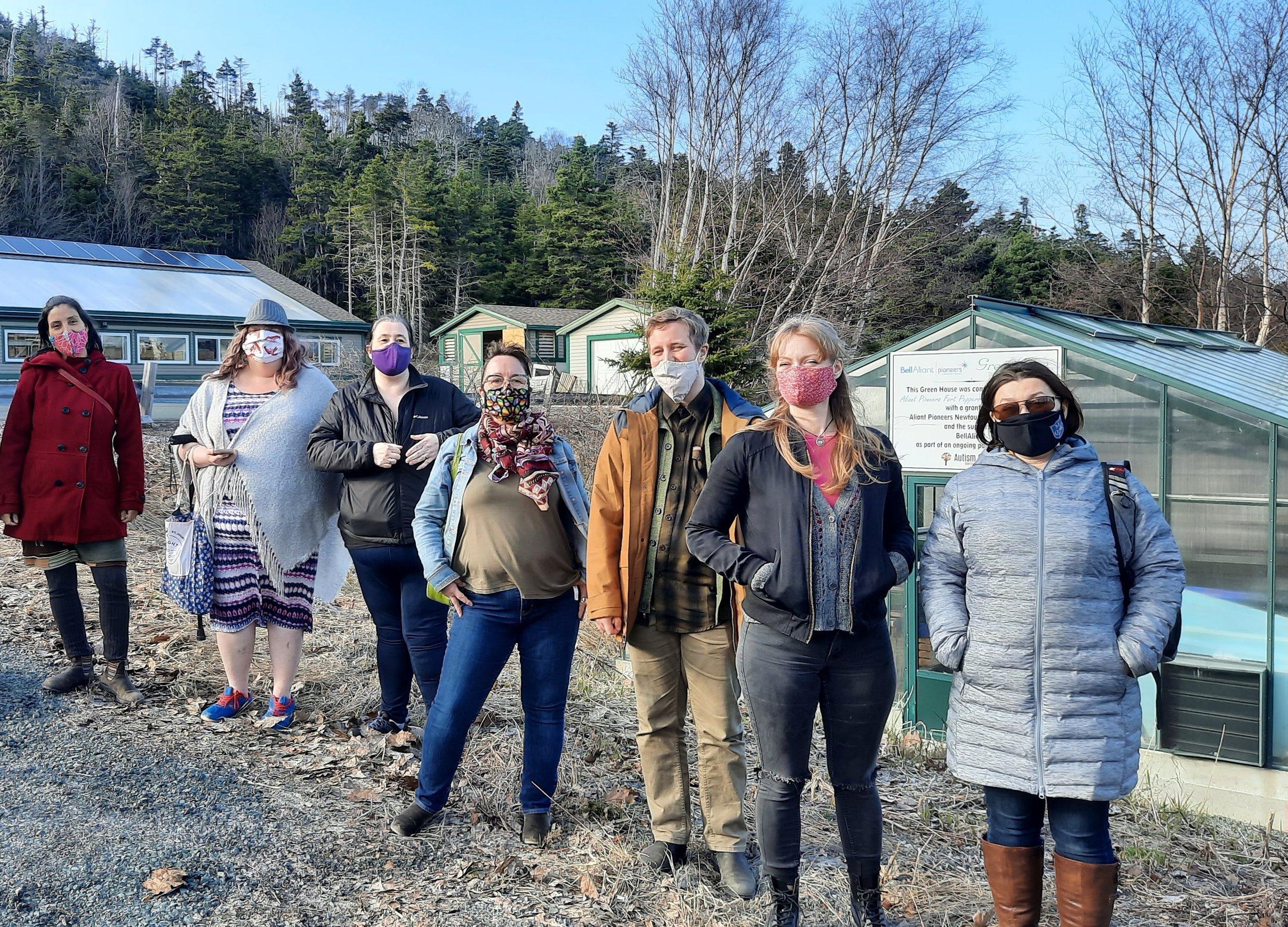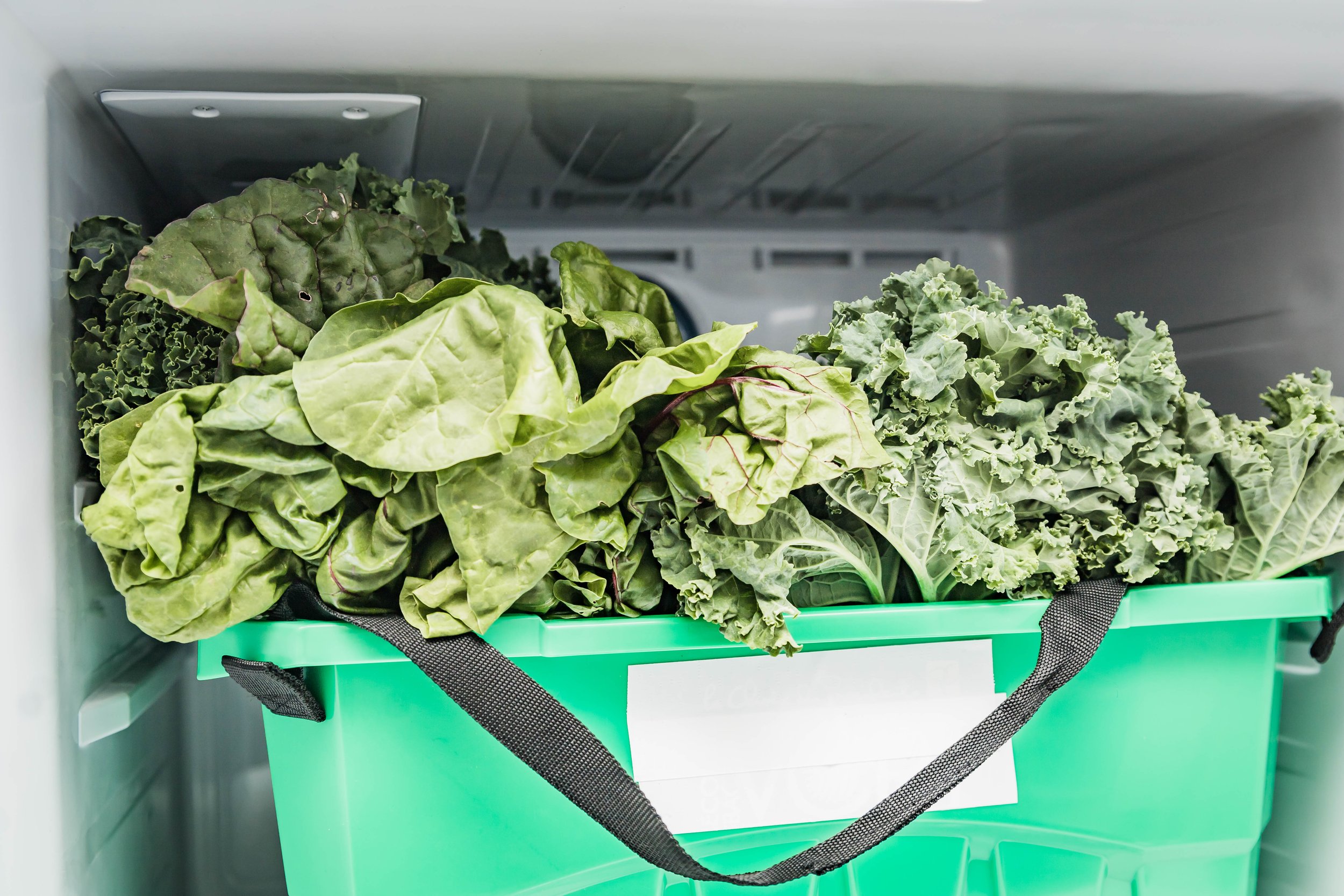
Social
Innovation
St. John's Food Assessment
Some of the first cohort of Food Animators at an event early in 2021.
The St. John’s Food Assessment began in 2020 as a community process to look at issues, inform strategies, and guide actions that improve food security for all. We called it “Eat the City” to capture the potential for civic action and municipal policies to support a sustainable food system.
These highlights of 2021 show how we Engage, Inform, and Take Action on food in St. John’s:
Putting together compost bins at the Food First NL office for the Georgestown Community Compost project.
Engage:
Activities built awareness and gathered perspectives from diverse community members. We heard from over 800 people in an online survey, 99 individuals representing 10 community organizations and 5 food businesses in St. John’s in focus groups and panel discussions.
We provided input on policy documents like the Healthy City Strategy and Resilient St. John’s Climate Plan; analysis from the assessment was used by community partners in Policy on the Rock and Health Accord submissions.
Inform:
Launched Eat the City: What We Learned About Food Systems in St. John’s as a snapshot of local food system issues and strengths.
Presented an overview of production, distribution, access, consumption, and waste.
The results of the Household Food Survey help us understand food-related strengths, weaknesses and opportunities. It shows how people obtain food, access transportation, and participate in programs, as well as their ideas about the future of food in St. John’s.
Take Action:
We supported the first cohort of 10 food animators, who shared 200+ hours of volunteerism related to capacity building and food action in St. John’s
Thank you to Food Action partner organizations and in-kind supporters: Bridges to Hope, Buckmaster Circle Community Centre, Food Communities Network with Lakehead University, Little Free Red Pantry, Local Wellness Collective, NL Eats, NL Social Justice Cooperative, O’Brien Farm Foundation, School Health Promotion Liaison Consultant, SucSeed
In May 2021, we hosted a Food-System Social Innovation Kickstarter! Faced with the complex issues, 5 innovator teams developed and pitched a concept to improve the local food system.
Congratulations to Mirella Leis of The Fish Market App, Christine and Emmanuel of Afro Kitchen, who won the People’s Choice Award, and NL Eats who won the Youth Social Innovator prize.
We’d like to take this opportunity to thank our many in-kind supporters for this event: John Gushue, Senior Producer with CBC News and Heather French, Business Start-up Advisor with NLOWE, who provided one-on-one virtual coaching to the teams to develop their pitches; judges Mayor Danny Breen, City of St. John’s, Jacqueline Harris, Social Risk & Investment Advisor Chevron Canada , and Nicole Helwig, Manager Memorial University Centre for Social Enterprise for their support and insight.
Emmanuel and Christine of Afro Kitchen NL, second place winners of the Social Innovation Kickstarter and winners of the People’s Choice Award.
Thank you to the hundreds of residents who have given their time to share thoughtful input on food, towards a St. John’s Food Action Plan in 2022.
Read more about the St. John’s Food Assessment here.

Western NL Food Hub
Cutting the ribbon at the Grand Opening of the Western NL Food Hub. Photo by Crystal Anderson-Baggs.
The Western NL Food Hub is a social enterprise based in Corner Brook, NL. The goal of this project is to improve access to local food in Western Newfoundland while strengthening our food system, our communities, and our well-being. In doing this work, we strive to prioritize equity, our environment, and community economic development. This project was made possible by the Canadian Agricultural Partnership.
This past year was the Food Hub’s inaugural season, and it was a great success! We operated the Food Hub as an online store, making products from many different local producers available in one single place. Then, each week, we would have our courier (Rudy’s) pick up those products and bring them back to our location, where we would fulfill the orders and have them available for pickup at the end of the week.
A sample of produce in the coolers at the Western NL Food Hub. Photo by Crystal-Anderson Baggs
This model was extremely effective for a world that is still in the midst of a pandemic, as it allowed customers to shop from the comfort of their own homes and it would have been very easy to accommodate a contact-less, curbside pickup model, had public health measures changed. We were able to get local food on customers’ plates from many different producers, also giving producers more opportunity to sell their products, all while stimulating the local economy. It was a win-win-win situation!
We partnered with Choices for Youth to staff the Food Hub. Together, we offered young people the opportunity to gain valuable work experience while getting local food on peoples’ tables.
We were very happy with our numbers from our first season, and plan to take what we’ve learned and apply those lessons to Season 2 of the Western NL Food Hub.




